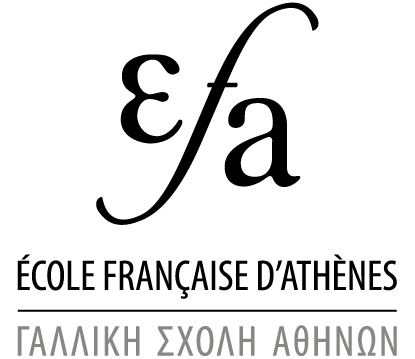
Perceptions and interpretations constituting the memory of the First World War vary substantially among European nations.France and Britain, for example, have seen in recent years a certain revival of the remembrance of the First World War, especially through the creation of sites of memory and the publication of new studies.In other countries, though, the First World War holds a less important role in the symbolic construction of the nation.
In all cases the collective experience of the war constitutes part of the cultural tradition of each country and contributes to the construction of national memory.
The aim of the Colloquium is to bring together the national historiographical approaches through the juxtaposition and comparative examination of multiple analyses and interpretations of the events of the First World War in the national traditions of European countries. There will be a focus on the analysis of various forms of interpretation and mediation, while some special ways of transmission of memory of the First World War in European societies, as well as the issue of the relations between memory and history in the various national traditions, will also be examined.
| Organizing and Scientific Committee: Georges-Henri SOUTOU, UMR IRICE-Paris IV University Maria COUROUCLI, CNRS/Ecole française d’Athènes Olivier FORCADE, UMR IRICE-Paris IV University Elli LEMONIDOU, University of Patras Nicolas MANITAKIS, University of AthensSpeakers: Dusan BATAKOVIĆ, Institute of Balkan History, Belgrade Frédéric GUELTON, Defence Historical Service, Paris Kostas KOSTIS, University of Athens Nicola LABANCA, University of Siena Elli LEMONIDOU, University of Patras Nils LÖFFELBEIN, University of Frankfurt Gueorgui PEEV, New Bulgarian University William PHILPOTT, King’s College, London Georges-Henri SOUTOU, UMR IRICE-Paris IV University Florin TURCANU, University of Bucharest Jay WINTER, Yale University |
| The Colloquium is jointly organized by the University of Patras, the École française d’Athènes and the UMR IRICE-Paris IV University, with the collaboration of the Goethe-Institut Athen. |
| Program | |
| 09:00 | Arrival of the participants |
| 09:15 | Welcome speeches |
| 09:30 | Lecture by Prof. Georges-Henri SOUTOU, UMR IRICE-Paris IV University Existe-t-il une mémoire européenne de la Grande Guerre?Chair: Maria COUROUCLI, CNRS/École française d’Athènes Discussion |
| 10:30 | Coffee Break |
| SESSION A: Chair: Christina KOULOURI, Panteion University | |
| 11:00 | Frédéric GUELTON, Defence Historical Service, Paris La mémoire de la “Guerre de 14” en France |
| 11:30 | Florin TURCANU, University of Bucharest Mémoire et historiographie de la Grande Guerre en Roumanie à l’époque communiste (1948-1989) |
| 12:00 | Gueorgui PEEV, New Bulgarian University La mémoire officielle de la Première guerre mondiale en Bulgarie |
| 12:30 | Elli LEMONIDOU, University of Patras La Première guerre mondiale des Grecs : une guerre “inconnue” et oubliée |
| Discussion | |
| 13:15 | Keynote lecture by Prof. Jay WINTER, Yale University The Great War: A Transnational Perspective Chair: Pantelis KIPRIANOS, Deputy Rector of the University of Patras |
| 14:15 | Lunch Break |
| SESSION B: Chair: Despoina PAPADIMITRIOU, Panteion University Nicolas MANITAKIS, University of Athens |
|
| 16:00 | Dusan BATAKOVIĆ, Institute of Balkan History, Belgrade Serbia’s Effort in the Great War. Testimonies, Celebrations, Interpretations |
| 16:30 | Nils LÖFFELBEIN, University of Frankfurt War Victimization and the Memory of the First World War in Germany after 1918 |
| 17:00 | William PHILPOTT, King’s College “Oh, what an ambiguous war!” The contested memory of the First World War in Britain |
| 17:30 | Nicola LABANCA, University of Siena Writing Italian military history of the First World War in the last two decades: changing historical research in time of vanishing memory |
| 18:00 | Discussion |
| 18:15 | Coffee Break |
| 18:45 | ROUNDTABLE
Participants: Chair: |
| * For all lectures simultaneous translation to Greek will be provided | |
